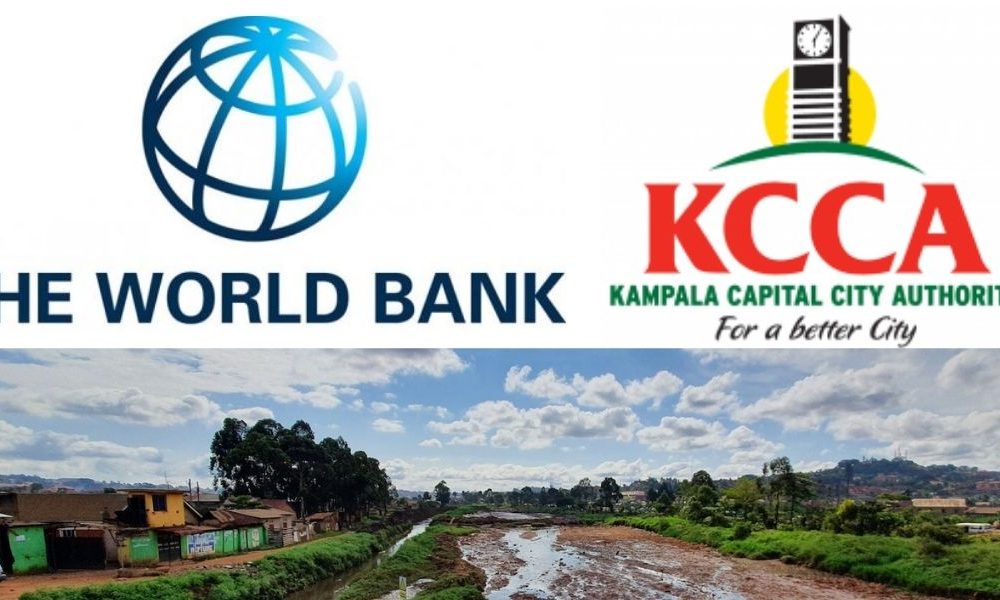DEFENDING LAND AND ENVIRONMENTAL RIGHTS
Breaking Alert! A community fighting forced eviction during COVID-19 lockdown, Witness Radio-Uganda together with Accountability Counsel file a complaint before the World Bank’s Inspection Panel…
Published
5 years agoon
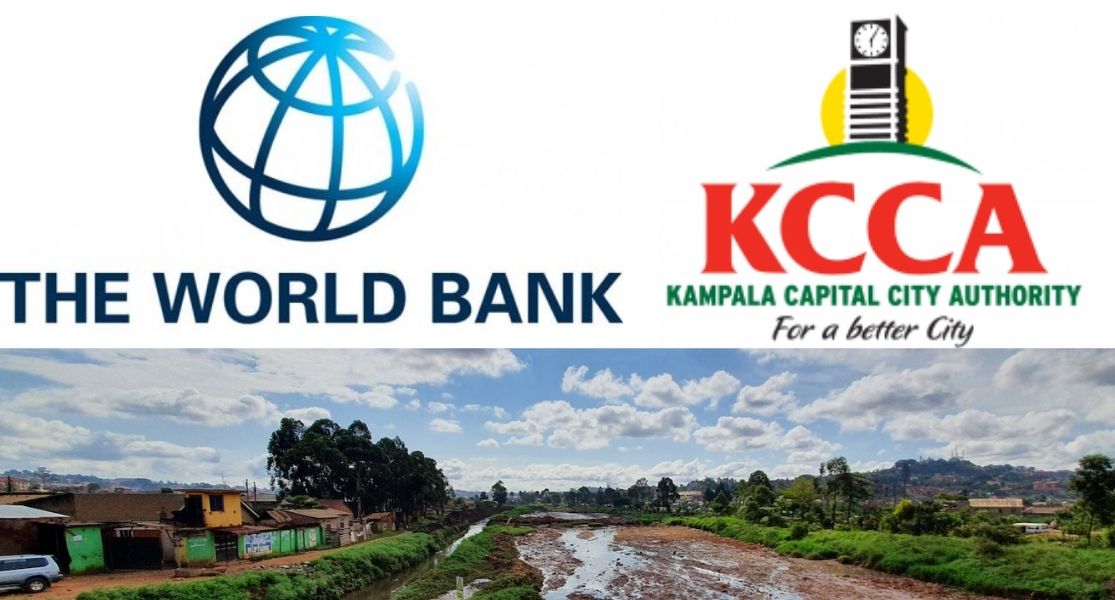
In the midst of the COVID-19 pandemic, the Kawaala community of Kampala, Uganda, is facing eviction to pave the way for the construction of the World Bank-funded Lubigi drainage channel. Accompanied by armed soldiers, representatives of the Kampala Capital City Authority (KCCA) turned up at shocked residents’ homes, placing a red “X” on many structures and explaining that they were earmarked for demolition – the first those families had heard of the KCCA’s plan to take their homes and land.
The construction of the Lubigi drainage channel will displace more than 100 families from their shelter and farmlands. These farms enable community members to feed their families and sell other produce, earning income that pays for their children to attend school. For some of the community members, family grave sites will be lost, as well as ancestral land intended for their children and grandchildren. Yet neither the KCCA nor the World Bank provided adequate information to the community about project plans, nor did they meaningfully consult them on the extent of displacement and any plans for compensation and resettlement, as required by World Bank policies, before issuing eviction notices.
After its glaring mismanagement of this project was highlighted by the Kawaala community and its local partners, including Witness Radio, KCCA and its agents have begun to push affected community members through a rushed and problematic resettlement process, prioritizing project timelines over the livelihoods and wellbeing of affected people and the accuracy and completeness of the process. Out of desperation, many community members have signed documents they do not understand.
The Kawaala community raised its concerns with the World Bank Uganda country office and asked them to closely monitor the project, but the World Bank refused – using restrictions associated with the COVID-19 pandemic as an excuse for their inaction – seemingly indifferent to the risks and impacts of forcibly displacing a vulnerable community during that same pandemic.
Given these failures, in the face of the severe threats to their wellbeing and livelihoods, the Kawaala community has filed a complaint about the project to the World Bank’s Inspection Panel seeking protection from the forced and unfair eviction processes, as well as meaningful consultation and participation in the design of a comprehensive and fair resettlement solution.
THE STORY:
An attempted forced eviction, during a pandemic
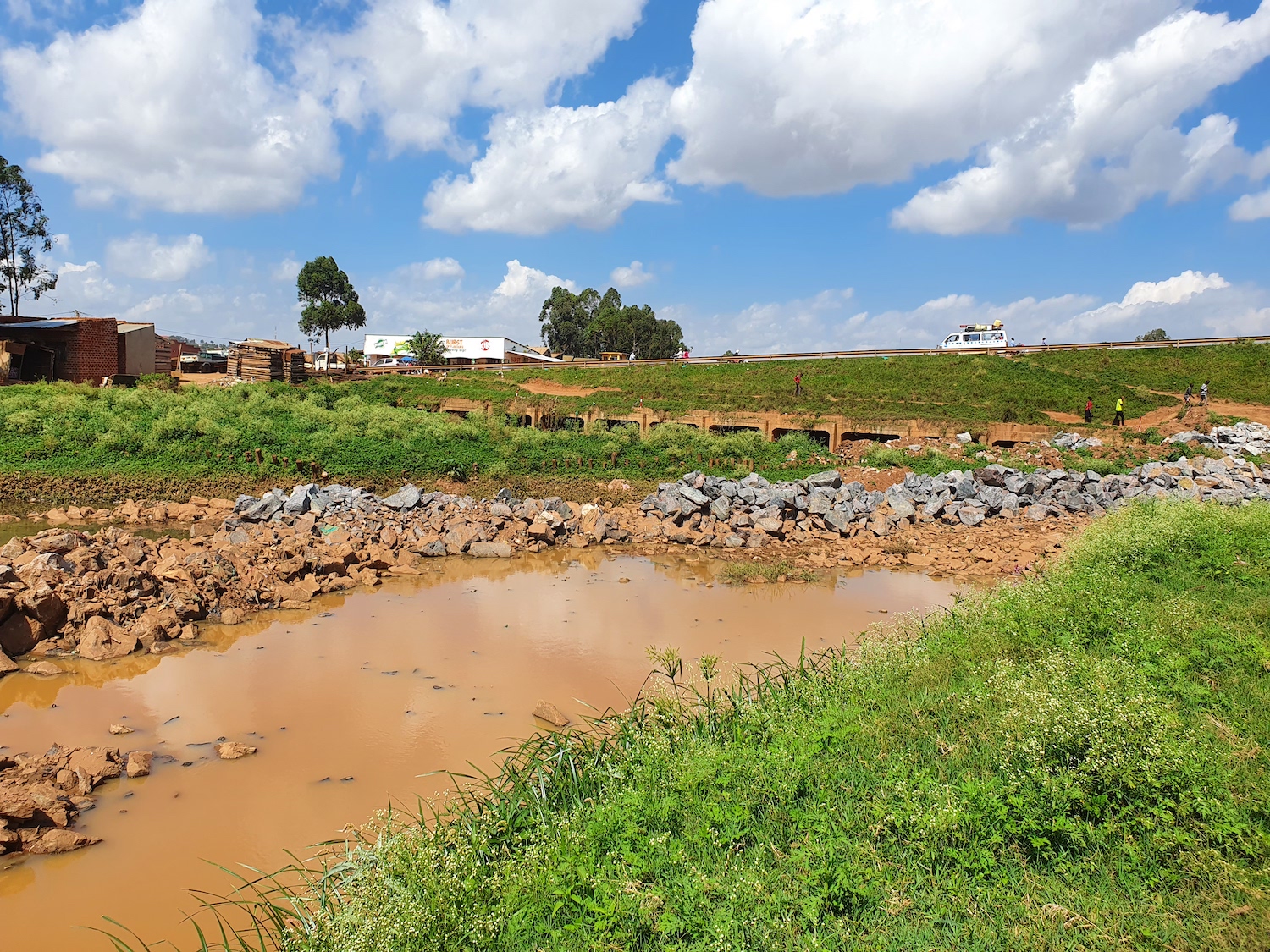
A channel diversion constructed around 2014 now causes water to flow through
residents’ properties. The planned expansion will widen it to 70 meters across, causing
extensive forced eviction.
In December 2020, in the midst of the COVID-19 pandemic, communities living in Kawaala Zone II, in Kasubi Parish, Rubaga Division, Kampala were awoken in the early morning hours to find excavators and armed guards destroying their property, without any prior consultation or plan for compensation and resettlement. The previous day, they had received eviction notices requiring them to vacate their lands within 28 days. The eviction notice was issued by the Kampala Capital City Authority (KCCA). The KCCA, with support from the World Bank, is constructing the Lubigi drainage channel as part of a broader road and infrastructure project.
The Kawaala community has lived, built their homes, and earned their livelihoods through farming and livestock-keeping in the area since the 1960s. With a population of approximately 300, the community is composed mostly of elderly men and women. Given the high number of elderly persons in the community, most are illiterate. Their farms enable community members to feed their families and sell other produce, earning income that pays for their children to attend school.
On December 3, 2020, the Kawaala communities were shocked to find KCCA representatives in their village, accompanied by armed guards, distributing eviction notices and informing residents that they had 28 days to vacate their homes. KCCA representatives approached residents’ homes, placing a red “X” on many structures and explaining that they were earmarked for demolition.
The eviction notices included a claim that violations of health and safety code were the reason for the evictions. However, through active investigations, the community was able to confirm that the area was being cleared to make way for the expansion of the Lubigi drainage channel, part of the World Bank-funded Second Kampala Institutional and Infrastructure Development Project (KIIDP-2).
Over the following two days, in contravention of the 28-day notice period, the KCCA began attempting to evict residents. They brought excavators and destroyed some homes and gardens before community members were able to contact local leaders, who successfully intervened and persuaded the KCCA to halt the eviction process.
The Kawaala community, with the support of Witness Radio, was then able to challenge the eviction by filing a case at the High Court in Kampala. This prompted the KCCA to halt the eviction process. However, the court case remains undecided and the eviction notice still has not been withdrawn, leaving the community at risk of sudden eviction.
The World Bank’s involvement
The World Bank’s KIIDP-2 project funds the construction and rehabilitation of roads and associated infrastructure throughout Kampala via a USD 175 million loan. This project includes, among other works, the expansion and construction of the Lubigi Primary Drainage Channel, which forms part of the eight primary channels in Kampala and is 2.5 kilometers long. The project also involves institutional and systems development support to the KCCA, including for engineering and technical services.
KIIDP-2 follows the Kampala Institutional and Infrastructure Development Project (KIIDP-1), which had similar objectives. Around 2014, KIIDP-1 led to the construction of a channel diversion that ran through the land of many local residents and cut others off from easy access to schools and basic services. Residents report that this diversion was described to them as “temporary,” and they were therefore not offered resettlement compensation. Some received a small sum for temporary disturbance from project works, while other families affected by the diversion did not receive even this much and were thrown into a state of desperation or even homelessness following the original channel diversion. KIIDP-2 will expand on this diversion, widening it significantly and requiring forced eviction of residents across an area 70 meters wide and 2.5 km long. Many residents report that they never realized that the diversion would be made permanent until the forced eviction process began last December.
A general project fact sheet by the KCCA claims that all affected properties were registered years ago, and states that no new developments will be valued or compensated, but residents dispute this claim. The KCCA has since walked back from this assertion and begun a rushed and problematic resettlement process, based on a contested and non-consultative surveying process that residents believe does not accurately reflect their land rights.
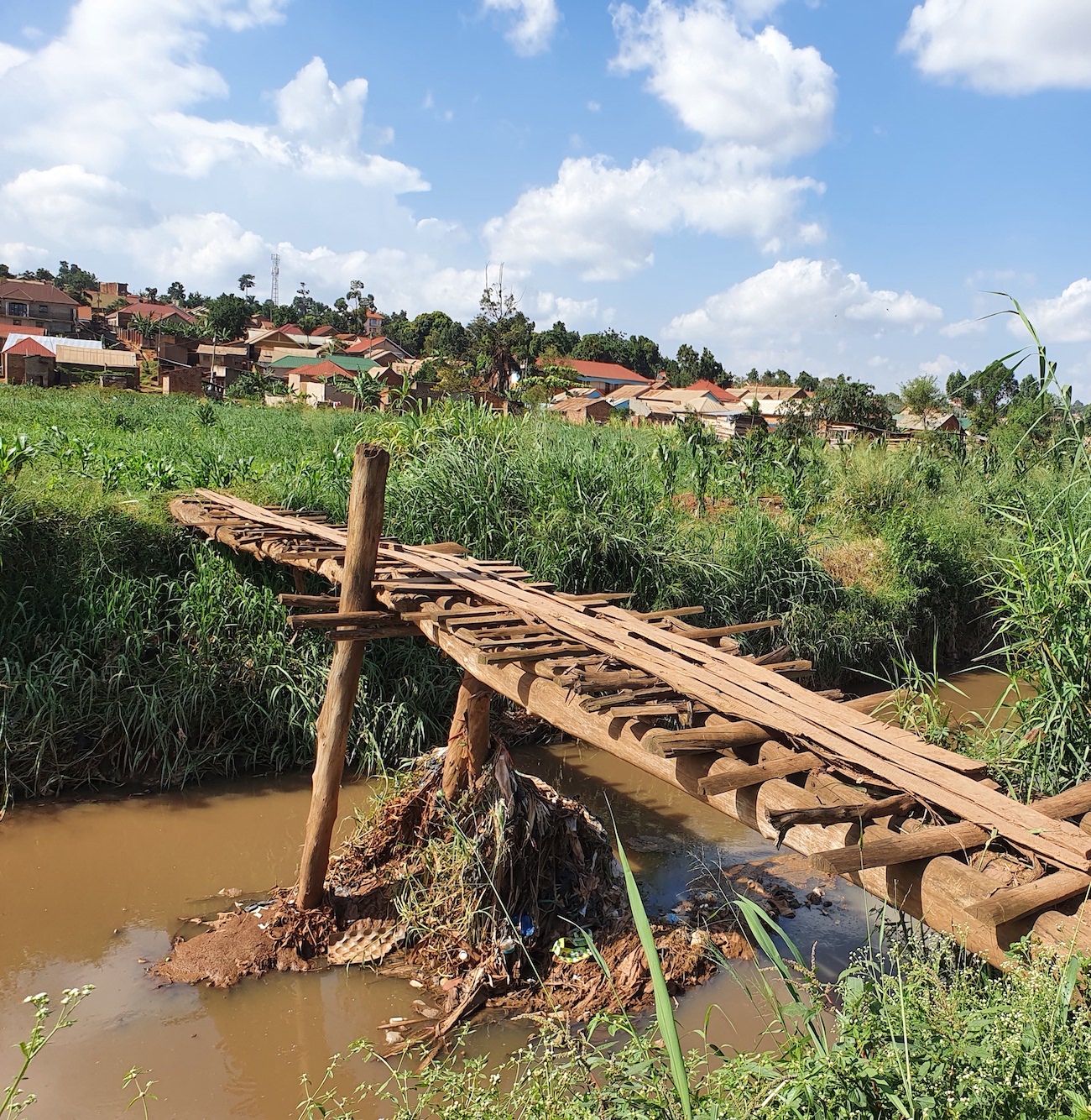
The channel diversion that began construction nearly 10 years ago has separated community members’ homes from the shops and schools visible across the waterway. This bridge was built by community members as a temporary fix, but it is dangerous, especially when water levels rise. Community members fear the channel expansion will exacerbate these problems.
The devastating impacts of this project
The Lubigi drainage channel project will result in most affected families losing their homes and others losing their farmland, leaving very little for them to sustain themselves. In addition to that displacement, the construction of the drainage channel poses a series of other environmental and social concerns:
- Loss and disruption of family remains: Some community members risk losing the remains of their loved ones that are buried in the land set aside for the project.
- Food insecurity: This risk comes as a result of the destruction of crops, including those crops already destroyed in the attempted forced eviction in December 2020.
- Loss of education: In case of any eviction or relocation without adequate compensation, community members fear that the children will be forced to drop out of school since the houses built and the crops grown on the land are their sole sources of income to cover their fees and tuition. Community members fear that this in turn will lead to increased marriage rates for young girls with limited options.
- Safety risks: Following the construction of the channel to date, the local area has become unsafe for children to play outside due to a constant risk of drowning, which is especially heightened during rainy periods. There have been reported cases of people drowning.
- Sexual exploitation: Some women in Kawaala have been compelled to engage in transactional sexual relationships to ensure that their children’s basic needs are met ever since the KCCA coerced them into abandoning their gardens to make way for the construction of the channel diversion under KIIDP-1. Residents fear that this pattern will be intensified if community members are not provided with fair and complete compensation to address the full extent of economic impacts from another forced resettlement.
- Cumulative impacts of multiple infrastructure projects: The Kampala Northern Bypass Highway, funded by the European Union and the Government of Uganda, as well as the Lubigi Sewage Treatment Plant, funded by the European Union and the German Government, were also constructed in the community’s immediate vicinity in recent years, surrounding the Kawaala community on multiple sides by government-sponsored and internationally funded infrastructure projects.
- Flooding: Far from improving the flooding problems that plague the area, community members have observed that flooding has actually increased in Kawaala Zone II, since the channel diversion and other multiple infrastructure projects began.
- Other social impacts: Residents expect that eviction without adequate compensation will likely lead to a host of other foreseeable social issues, such as increased rates of domestic violence, child abandonment, or other family rifts.
Because of the totality of these impacts, the community deems it best to be compensated and resettled elsewhere in order to live with dignity.
Raising concerns with the World Bank Uganda country office
The KIIDP-2 project is proceeding in blatant contravention of a host of World Bank commitments designed to ensure meaningful consultation of communities and to avoid or mitigate environmental and social impacts, including resettlement. Although the KCCA has walked back from its initial assertions denying residents’ rights to compensation, in recent months it has undertaken a forced, rushed, and non-transparent survey process that some residents were unable to participate in. Residents are deeply skeptical that any compensation determined based on this incomplete survey will provide them with fair and accurate compensation assessments.
On March 4, 2021, community representatives raised their concerns regarding the project and the potential harm in a meeting with KCCA officials and the World Bank Uganda country office team. The World Bank team directed that the KCCA intensify citizen and stakeholder engagement and provide adequate project information to the community in Luganda rather than English. Further, the KCCA was asked to carry out proper identification of the project-affected persons and, through a consultative process, determine the amount and type of compensation needed. Lastly, the World Bank team directed that the KCCA re-constitutes a Grievance Redress Committee composed of representatives of all the stakeholders in the project.
The World Bank, however, refused the community’s demand that Bank staff visit the project site and engage in follow-up meetings with the community. The community feared that, without this supervision, the KCCA would continue to abuse the rights of affected community members.
Those fears have been realized. The KCCA has not followed the directions of the World Bank and is continuing to rely on its forced survey process, as well as failing to meaningfully consult community members on the details of any compensation.
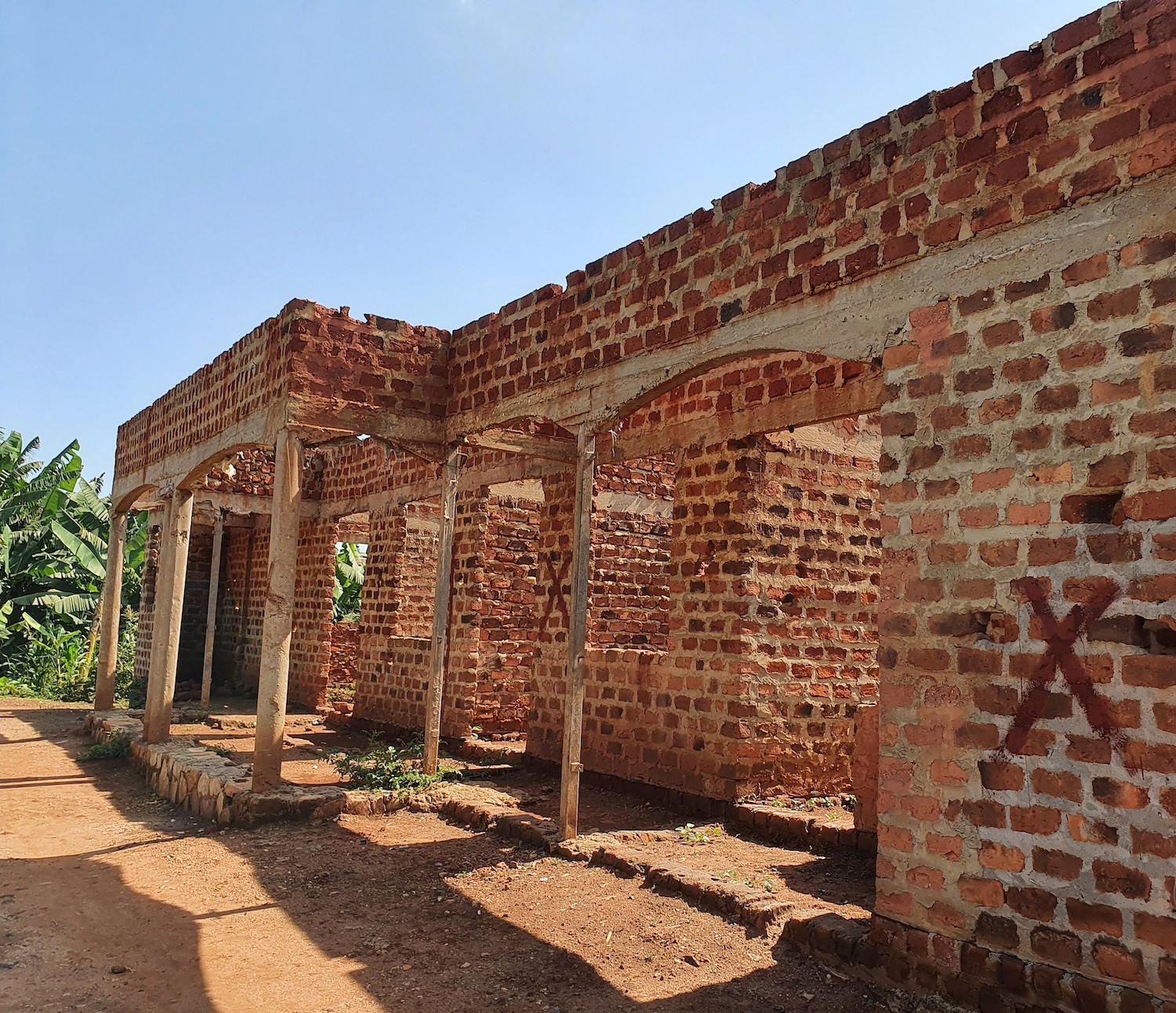
A Kawaala resident was in the midst of constructing his home when he heard about the eviction notice. He hesitates to continue construction out of fear of imminent demolition.
Inspection Panel complaint
Through Witness Radio, community representatives reached out to Accountability Counsel to support the filing of a complaint. Because of the non-responsiveness of the KCCA and the World Bank to their concerns, the community wanted to escalate those concerns to the World Bank’s independent accountability mechanism, the Inspection Panel. After several consultations with different groups in the community to understand their concerns and goals of the complaint, Witness Radio and community representatives filed a complaint on June 17, 2021 with the following demands (in summary):
- That the project should be investigated and evictions halted until affected people are properly informed about the project and consulted about its impacts and necessary mitigation measures, and are consulted on the formation of a resettlement action plan that addresses the concerns of local residents;
- That the KCCA formally withdraws the eviction notice issued under the Public Health Act Cap. 281 against the residents and other similarly affected persons;
- That the community be resettled and fairly compensated, given that the land is now uninhabitable;
- That the compensation processes be aimed at ensuring that the entire family is included and able to share in the benefits, rather than being provided to the head of household only, which can contribute to intra-family and social conflicts and gender disparities. For example, the KCCA should encourage both spouses to sign compensation documents and attend related meetings, and it should provide compensation funds into jointly-owned bank accounts; and
- That the affected people should be provided with resettlement assistance, including scholarships for their children at least until families have an opportunity to find an alternative livelihood. Any resettlement assistance should include social support programs such as stress management, anger management, and domestic violence sensitization programming to reduce common social problems that can accompany physical displacement.
The complaint is currently awaiting registration and an assessment of eligibility by the Inspection Panel.
Case Partners
Accountability Counsel is partnering on this case with Witness Radio, an advocacy and media organization focused on issues of rights in development in Uganda, cutting across sectors (including agribusiness, environment, mining, and extraction). They monitor, document, and report human rights violations using traditional and new media formats and, where possible or necessary, support communities to seek justice through judicial and non-judicial mechanisms.
THE CASE:
-
Jun 2021
Community representatives filed a complaint with the World Bank’s independent accountability mechanism, the Inspection Panel, on June 17.
-
Mar 2021
Community representatives met with the World Bank Uganda country office and the Kampala Capital City Authority (KCCA).
-
Dec 2020
In spite of the 28-day notice period communicated on the previous day, on December 4 and 5, the KCCA began attempting to evict residents. They brought excavators and destroyed some homes and crops before community members were able to contact local leaders, who successfully intervened and persuaded the KCCA to halt the eviction process. Shortly after, the Kawaala community, with the support of Witness Radio, was then able to challenge the eviction by filing a case at the High Court in Kampala. This prompted the KCCA to halt the eviction process. However, the eviction notice still has not been withdrawn.
-
Dec 2020
On December 3, the KCCA issued a notice to residents of Kawaala Zone II to vacate their land within 28 days.
IMPACT:
Through their local partner, Witness Radio, community representatives reached out to Accountability Counsel because their concerns were not being heard by the World Bank or its client, the Kampala Capital City Authority. As is too often the case, as soon as Accountability Counsel became involved, the World Bank became more responsive – although their actions continue to be woefully inadequate to prevent harm and comply with their own environmental and social safeguards.
Given those failures on the part of the World Bank and its client, community members decided to elevate their concerns to the World Bank’s Inspection Panel. In April 2021, Accountability Counsel’s Africa Communities Associate, Robi Chacha Mosenda, traveled to Kampala to document the community’s concerns and goals in preparation for complaint filing.
On June 17, 2021, Witness Radio filed an Inspection Panel complaint on behalf of the Kawaala Zone II community, seeking protection from the forced and unfair eviction processes, as well as meaningful consultation and participation in the design of a comprehensive and fair resettlement solution.
In close partnership with Witness Radio, we will continue to support the Kawaala Zone II community to prepare for, understand, and navigate through each stage of the Inspection Panel’s process, demanding accountability and remedy from the World Bank for its oversight and lack of due diligence that has harmed these communities.
CASE MEDIA:
Media Coverage
- 5 March 2021 Witness Radio welcomes the World Bank’s intervention into Kawaala drainage channel project affected persons By Witness Radio Team
- 22 December 2020 The World Bank and its partners flout business and human rights standards to evict hundreds of families By Witness Radio Team
- 9 December 2020 Tension as more than 300 poor families are being evicted by a World Bank-funded project By Witness Radio Team
Photos
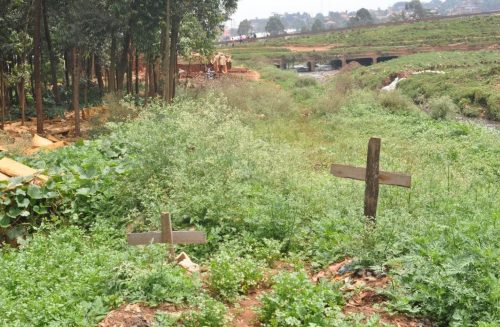
Family burial sites have experienced regular flooding ever since the initial channel diversion directed water through residents’ properties. These burial sites now in the path of the planned channel expansion (Credit Witness Radio).
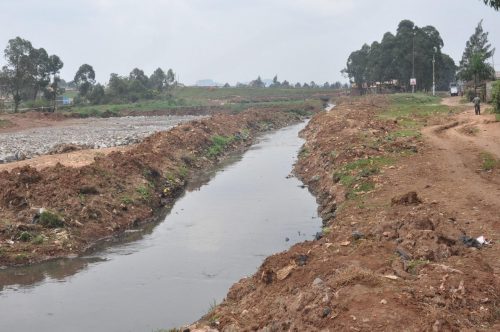
This channel diversion constructed around 2014 will be widened to 70 meters, requiring extensive evictions. (Credit: Witness Radio).
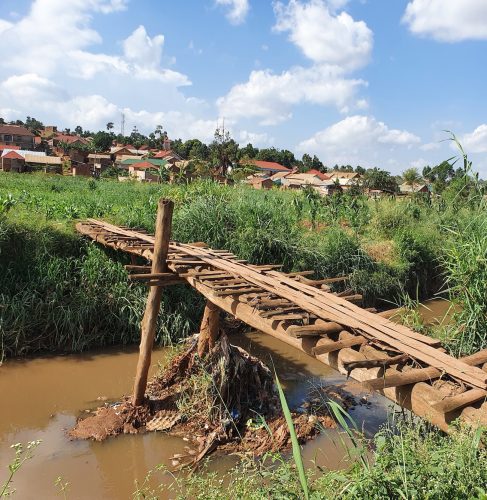
A makeshift bridge connects Kawaala residents with schools and shops across the channel but creates a safety hazards, especially during frequent flood events.
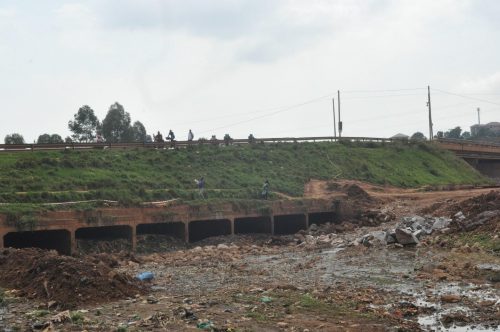
The channel diversion constructed in 2014 has led to increased flooding and safety hazards, including at least one drowning due to inadequate walkways around the channel. (Credit Witness Radio)
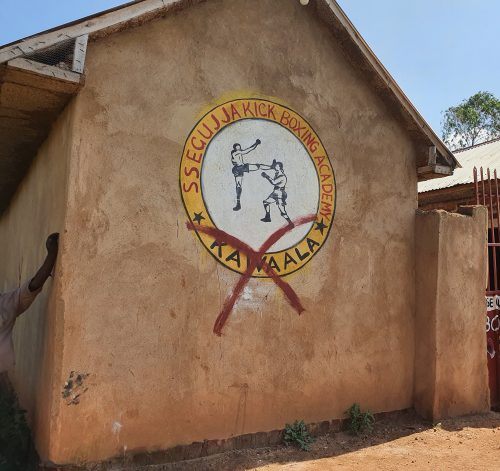
A community kickboxing academy marked for demolition by KCCA.
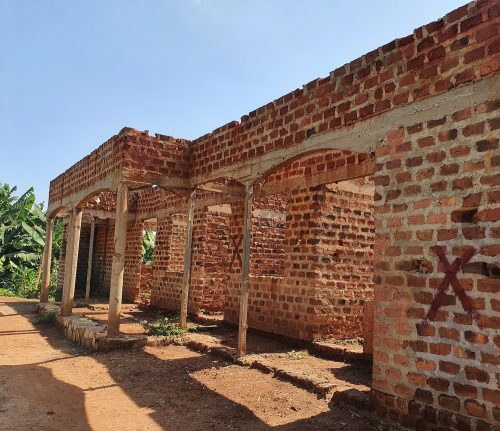
A homeowner hesitates to finish construction his home, as it is marked for demolition by the KCCA.
Original Source: accountabilitycounsel.org
Related posts:
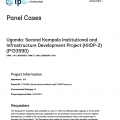
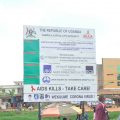 Ugandan communities fighting forced eviction during the COVID-19 pandemic is facing reprisals from the World Bank-funded project implementer, defender arbitrarily arrested
Ugandan communities fighting forced eviction during the COVID-19 pandemic is facing reprisals from the World Bank-funded project implementer, defender arbitrarily arrested
 Forced eviction during covid-19 lockdown: KCCA with the World Bank funding is excluding me and my siblings from being compensated for our properties because we evolved lawyers in the eviction process.
Forced eviction during covid-19 lockdown: KCCA with the World Bank funding is excluding me and my siblings from being compensated for our properties because we evolved lawyers in the eviction process.
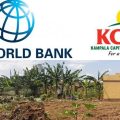 Witness Radio welcomes the World Bank’s intervention into Kawaala drainage channel project affected persons…
Witness Radio welcomes the World Bank’s intervention into Kawaala drainage channel project affected persons…
 Ugandan community files complaint to World Bank amid forced evictions
Ugandan community files complaint to World Bank amid forced evictions

You may like
DEFENDING LAND AND ENVIRONMENTAL RIGHTS
Court Alert: Court Grants Bail to Jailed Defender and Wife.
Published
7 months agoon
July 21, 2025
By Witness Radio team.
After a significant legal engagement, a magistrate court in Kiryandongo District has decided to release a community land rights defender and his wife on bail. This decision comes after they spent 40 days in prison.
Olupot James, a community land rights defender from Kikungulu village, Kibeeka Parish, Kapundo Sub-county, in Kiryandongo District, and his wife, Apio Sarah, were charged with malicious damage to property on June 5th, 2025, and were remanded to different prisons, including Dyang Prison.
The arrest of the defender and his wife has had a profound impact on their four children, leaving them in a state of grief and pain. They were left without parental care in a house surrounded by the sugar plantation.
According to the prosecution, the duo allegedly uprooted sugarcane plants belonging to Kiryandongo Sugar Limited and replaced them with maize on land neighboring the defender’s home. The multinational claims ownership of the land.
The Penal Code Act, Cap. Section 312 (1) of Uganda states that any person who willfully and unlawfully destroys or damages any property commits an offence and is liable on conviction to up to five years’ imprisonment.
Since 2017, Olupot and several other community land defenders have been in and out of prison, a testament to their unwavering resistance against illegal land evictions. Their resilience is a source of inspiration for many. Thousands of families claim they have lost their land to the multinational without following any law, without receiving any compensation, and without being offered an alternative settlement.
Through Witness Radio Legal Aid Chambers, the duo was granted a non-cash bail of two million Shillings, and their case has been fixed for hearing on July 28th, 2025.
The children, who have been enduring the absence of their parents, are now experiencing a sense of relief and joy as the family is reunited.
Related posts:

 Court releases a tortured community land rights defender on bail
Court releases a tortured community land rights defender on bail
 After being tortured by the army, the land rights defender is charged and remanded to prison
After being tortured by the army, the land rights defender is charged and remanded to prison
 Breaking: A community land rights defender in the Kiryandongo district is charged with assault and released on a cash bail.
Breaking: A community land rights defender in the Kiryandongo district is charged with assault and released on a cash bail.
 Latest: Buganda Road Court grants bail to Eleven Ugandan environmental activists after spending over a week on remand.
Latest: Buganda Road Court grants bail to Eleven Ugandan environmental activists after spending over a week on remand.
DEFENDING LAND AND ENVIRONMENTAL RIGHTS
A land rights defender and his wife have been arrested, charged, and sent to prison.
Published
7 months agoon
July 16, 2025
By Witness Radio team.
Kiryandongo District – A community land rights Defender at Nyamutende Cell in Kiryandongo District, and his wife have been sent to prison by a magistrate’s court in Kiryandongo District, Witness Radio confirms.
Olupot James and his wife, Apio Sarah, were charged with malicious damage to property after a multinational company, Kiryandongo Sugar Limited, accused them of destroying its crops. The area police later picked them up.
Since 2017, Kiryandongo Sugar Limited, a subsidiary of Rai Holdings Private Limited, has been among the three multinationals that have forcibly displaced over thirty-five thousand (35,000) people in Kiryandongo District without following due diligence or offering alternative settlement options.
Community land Rights defender Olupot James and his wife Apio Sarah are amongst a few remaining families that resisted the company’s violent eviction and repression. Their home is currently trapped in the middle of the sugar plantation after they lost their land, which was dug up to the house by the multinational. Despite their peaceful resistance, Olupot has been arrested, charged, and imprisoned more than six times, a clear indication of the injustice they are facing.
Since late May this year, the duo has been reporting to Kiryandongo police station on Criminal Case Number CRB No. 316/2025, until they were arrested and aligned before the court and imprisoned. Olupot was remanded to Dyang while Apio is in Kiryandongo prison.
The state alleges that Olupot and Apio committed the offence of malicious damage to property in Kikungulu village, Kiryandongo District, a region with a complex history of land-related conflicts.
The Witness Radio’s legal aid team is monitoring the case and will appear in court to apply for their bail.
Related posts:

 Land rights defenders charged with criminal trespass, released on police bond.
Land rights defenders charged with criminal trespass, released on police bond.
 Court releases a tortured community land rights defender on bail
Court releases a tortured community land rights defender on bail
 Breaking! Land rights defender charged with setting fire to crops, released on bond
Breaking! Land rights defender charged with setting fire to crops, released on bond
 Breaking: A community land rights defender in the Kiryandongo district is charged with assault and released on a cash bail.
Breaking: A community land rights defender in the Kiryandongo district is charged with assault and released on a cash bail.
DEFENDING LAND AND ENVIRONMENTAL RIGHTS
Crackdown on EACOP protesters intensifies: 35 Activists arrested in just four months.
Published
10 months agoon
April 30, 2025
By Witness Radio team.
Ugandan authorities’ ongoing crackdown on anti-EACOP protest marches is spreading rapidly like wildfires. The East African Crude Oil Pipeline (EACOP) Project, a significant oil infrastructure development, has been a point of contention. Recently, Witness Radio warned that criminalizing the activities of individual activists and environmental defenders opposed to this project, which aims to transport crude oil from Hoima in Uganda to the Port of Tanga in Tanzania, will be regarded as the most disastrous and insensitive to communities’ concerns in Uganda’s history.
In just four months, a series of arrests targeting environmental activists opposing the mega oil project that transports crude oil from Hoima in Uganda to the Port of Tanga in Tanzania has resulted in a scene of crime. No one is allowed to express their concerns peacefully about it and push back on its adverse negative impacts.
While activists view the peaceful marches as a rightful and brave effort to protect the environment and the communities affected by the project, the authorities, including the Uganda police and Prosecutor’s office, regard these actions as attempts to sabotage development projects and resort to criminalization.
Activists and civil society organizations’ reports indicate that the project will likely damage the environment and has displaced thousands of local communities in Uganda and Tanzania.
Despite growing concerns and an intensified crackdown, project financiers and shareholders remain unwavering in supporting the EACOP project. This steadfast support underscores the urgency of the situation. However, environmental and human rights defenders stand firm, resolutely demanding the project’s halt, showing a glimmer of hope in this challenging situation.
Over last weekend, eleven (11) environmental activists were arrested, charged, and sent to prison. They were arrested and detained by police at Kenya Commercial Bank (KCB) premises while attempting to deliver a petition urging the bank to halt its financial support for the 1,444-kilometer heated pipeline project.
The arrest of the eleven activists comes less than a month after nine activists were detained on April 02 outside the Stanbic Bank headquarters while attempting to deliver a petition urging the bank to halt its funding for the project.
The eleven include Bob Barigye, Augustine Tukamashaba, Gilbert Ayebare, Umar Kasimbe, Joseph Ssengozi, Keith Namanya, Raymond Bituhanga, Mohammed Ssentongo, Paul Ssekate, Misach Saazi and Phionah Nalusiba.
KCB Bank Uganda is one of the banks that recently joined the race to fund the EACOP project. Last month, On March 26, 2025, EACOP Ltd., the company in charge of the construction and future operation of the EACOP project, announced that it had acquired additional financing provided by a syndicate of financial institutions, including regional banks such as KCB Bank.
Other banks in the syndicate include the Stanbic Bank Uganda, the African Export-Import Bank (Afreximbank), the Standard Bank of South Africa Limited, and the Islamic Corporation for the Development of the Private Sector (ICD).
The activists appeared before the Nakawa Chief Magistrate Court on April 25. They were charged with criminal trespass. According to section 302 of the Penal Code, a person convicted of criminal trespass is liable to a maximum sentence of one year in prison. This detail underscores the weight of the situation.
The activists are currently on remand at Luzira Maximum Prison and are expected to appear again before the court on May 08, 2025, for mention.
Related posts:

 The latest: Another group of anti-EACOP activists has been arrested for protesting Stanbic Bank’s financing of the EACOP Project.
The latest: Another group of anti-EACOP activists has been arrested for protesting Stanbic Bank’s financing of the EACOP Project.
 Another group of eleven environmental activists have been charged with common nuisance and remanded to Luzira Prison for opposing the EACOP project.
Another group of eleven environmental activists have been charged with common nuisance and remanded to Luzira Prison for opposing the EACOP project.
 Breaking: Eight (8) environmental activists have been arrested by police over protesting against the EACOP project.
Breaking: Eight (8) environmental activists have been arrested by police over protesting against the EACOP project.
 Breaking: 15 Anti-EACOP Activists Arrested in Kampala While Marching to Parliament
Breaking: 15 Anti-EACOP Activists Arrested in Kampala While Marching to Parliament

UPDF General on the spot over fresh evictions in Hoima

Small-scale fishers and coastal communities are pushing to testify before a human rights commission investigating the causes of food inequality in South Africa.

The Kenyan government insists on maintaining provisions of the Seed Act that the court nullified: farmers and legal experts question the motive.

FEATURE: What Lagos Can Learn From Kenya, Morocco, Uganda’s Forced Evictions

Women environmental rights defenders in Africa are at the most significant risk of threats and attacks – ALLIED New report

Uganda moves toward a Bamboo Policy to boost environmental conservation and green growth.

Evicted from their land to host Refugees: A case of Uganda’s Kyangwali refugee settlement expansion, which left host communities landless.

200 farmers demonstrate at parliament, worried about new seed monopoly

Innovative Finance from Canada projects positive impact on local communities.
Over 5000 Indigenous Communities evicted in Kiryandongo District
Petition To Land Inquiry Commission Over Human Rights In Kiryandongo District
Invisible victims of Uganda Land Grabs
Resource Center
- Land And Environment Rights In Uganda Experiences From Karamoja And Mid Western Sub Regions
- REPARATORY AND CLIMATE JUSTICE MUST BE AT THE CORE OF COP30, SAY GLOBAL LEADERS AND MOVEMENTS
- LAND GRABS AT GUNPOINT REPORT IN KIRYANDONGO DISTRICT
- THOSE OIL LIARS! THEY DESTROYED MY BUSINESS!
- RESEARCH BRIEF -TOURISM POTENTIAL OF GREATER MASAKA -MARCH 2025
- The Mouila Declaration of the Informal Alliance against the Expansion of Industrial Monocultures
- FORCED LAND EVICTIONS IN UGANDA TRENDS RIGHTS OF DEFENDERS IMPACT AND CALL FOR ACTION
- 12 KEY DEMANDS FROM CSOS TO WORLD LEADERS AT THE OPENING OF COP16 IN SAUDI ARABIA
Legal Framework
READ BY CATEGORY
Newsletter
Trending
-

 NGO WORK2 weeks ago
NGO WORK2 weeks agoUS-DRC Strategic Partnership Agreement Faces Constitutional Challenge in Court
-

 MEDIA FOR CHANGE NETWORK2 weeks ago
MEDIA FOR CHANGE NETWORK2 weeks agoClose to six years on, Pangero Chiefdom subjects still linger in pain after the government army’s forceful takeover of their ancestral land.
-

 MEDIA FOR CHANGE NETWORK2 weeks ago
MEDIA FOR CHANGE NETWORK2 weeks agoIndigenous communities’ complaint against World Bank-linked Nepal Cable Car Project declared eligible for investigation.
-

 MEDIA FOR CHANGE NETWORK2 weeks ago
MEDIA FOR CHANGE NETWORK2 weeks agoDecades of land loss and chronic poverty: Salala Rubber Plantation prioritizes profit over the well-being of local Liberian communities.
-

 MEDIA FOR CHANGE NETWORK2 weeks ago
MEDIA FOR CHANGE NETWORK2 weeks agoThe Witness Radio and Seed Savers Network Joint Radio program boosts Farmers’ knowledge of seed and food sovereignty.
-

 MEDIA FOR CHANGE NETWORK7 days ago
MEDIA FOR CHANGE NETWORK7 days agoFEATURE: What Lagos Can Learn From Kenya, Morocco, Uganda’s Forced Evictions
-

 MEDIA FOR CHANGE NETWORK1 week ago
MEDIA FOR CHANGE NETWORK1 week ago13 years after the refugee host community was forcefully evicted to expand a refugee settlement, thousands remain unsettled.
-

 MEDIA FOR CHANGE NETWORK2 days ago
MEDIA FOR CHANGE NETWORK2 days agoThe Kenyan government insists on maintaining provisions of the Seed Act that the court nullified: farmers and legal experts question the motive.
